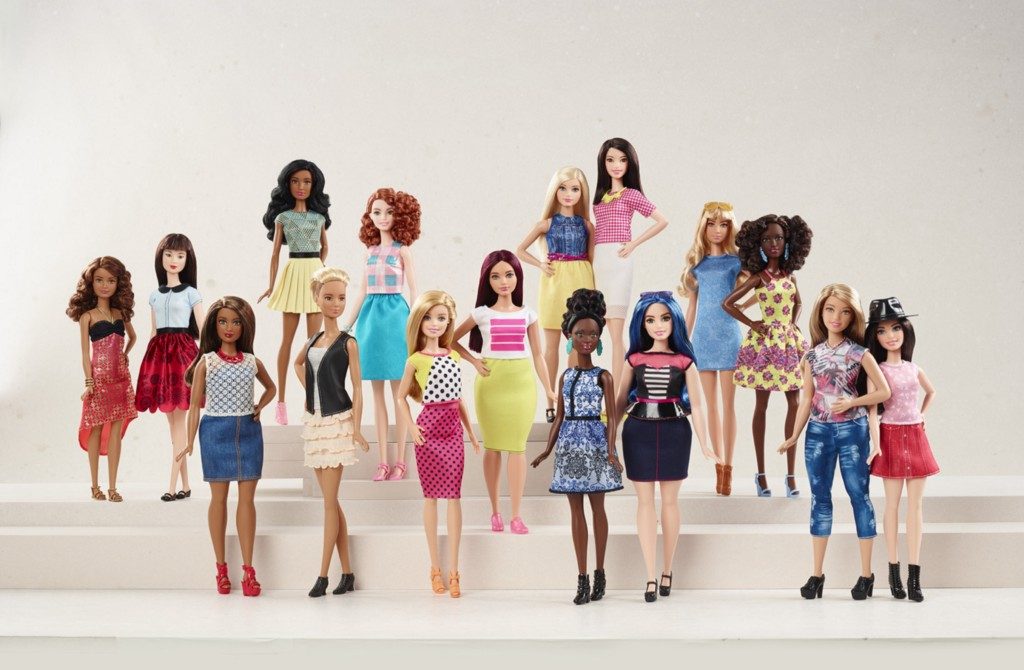Andrea Nevins is an Academy Award-nominated, Emmy award-winning
director, producer, and writer. Her credits include “The Other F Word” and “Play it Forward”
“Tiny Shoulders: Rethinking Barbie” will premiere at the 2018 Tribeca Film Festival on April 25.
W&H: Describe the film for us in your own words.
AN: The film uses Barbie as a lens to look at the last 60 years of feminism, weaving archival footage with a vérité look at how the current Barbie team is negotiating today’s focus on women, diversity, and the body.
W&H: What drew you to this story?
AN: A friend of mine on the Barbie team described a bulletin board worthy of “Homeland’s” Carrie Mathison that connected current and historic ideas in order to evaluate a doll that seemed woefully outdated, at best. This visual — and the notion that a group of smart, strong women were rethinking a female icon — seemed an intriguing way to examine what it means to be a woman today.
W&H: What do you want people to think about when they are leaving the theater?
AN: How extremely complicated it is to be a woman. That although strides have been made, we still have a long way to go. We are still objectified. We still don’t have parity. What is feminine is still considered less than.
W&H: What was the biggest challenge in making the film?
AN: The toy industry is notoriously secretive, so getting inside Mattel to tell this story was difficult — so difficult it had never been done before.
As a filmmaker, I feared the subject would be preemptively judged. However, that was also interesting, because we, as women, are also continually preemptively judged.
W&H: How did you get your film funded? Share some insights into how you got the film made.
AN: Once we got permission to film, we were let in on what was to be the biggest change in Barbie’s 57-year history. We couldn’t stop filming, despite the fact that we had limited self-funding.
Thankfully, Hulu got wind of the project and jumped on board in the nick of time. They’ve been tremendous partners, really permitting us to elevate our filmmaking and production value.
W&H: What does it mean for you to have your film play at Tribeca Film Festival?
AN: This is my second world premiere here at Tribeca, so not only do I feel very much at home, but I also know what huge supporters they are of female filmmakers. The amazing Jane Rosenthal, [who co-founded the fest,] checked in on me every step of the way while I was making this — for three years — which meant the world to me. So often, as a documentary filmmaker, I’ve felt invisible, and she made me feel visible.
W&H: What’s the best and worst advice you’ve received?
AN: The best advice I got came when I was a young journalist, which was don’t take no for an answer. Keep knocking on doors and keep searching for alternate routes.
I’m not sure about worst advice. Bad advice is always an opportunity for a gut check, a chance to see something in a way that you might not have considered. It helps you figure out what you, yourself, believe.
W&H: What advice do you have for other female directors?
AN: If your intuition indicates that a potential male boss is chauvinistic, try to avoid the job. It can be derailing. The good thing is there are lots of men out there who do believe in women.
W&H: Name your favorite woman-directed film and why.
AN: When I saw Barbara Kopple’s “Harlan County, USA,” when I was in college, it changed my life. I felt I’d been given access to a world I would never have known, and people whose lives were dire and noble. And there was such a respectfulness and intimacy in the filmmaking that I continue to aspire to in all of my work. It entirely informed my future career choice. I wanted to help tell human stories that would not only inform, but move people.
W&H: Hollywood and the global film industry are in the midst of undergoing a major transformation. Many women — and some men — in the industry are speaking publicly about their experiences being assaulted and harassed. What are your thoughts on the #TimesUp movement and the push for equality in the film business?
AN: Time is, indeed, up, and I support the movement 100 percent. I, like almost every single one of us in my generation, have had experiences of harassment and being silenced. I have an 18-year-old daughter who is about to enter the “real” world, and I want nothing more than for her future academic and working life to be one free from such deeply damaging behavior, with equal access to anything she sets her mind to.







